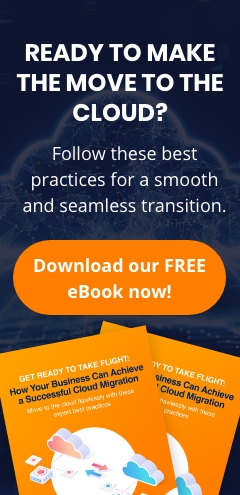The cloud is now at the forefront of business computing, eclipsing traditional on-premises infrastructures as a reliable, scalable, and cost-effective IT solution. But because some organizations focus too much on leveraging cloud technologies to quickly boost operations, they tend to overlook the inherent risks associated with moving to the cloud.
Most businesses employ basic internal security measures to protect their on-premises networks. For instance, they utilize firewalls and intrusion detection systems (IDS) or intrusion prevention systems (IPS). However, these alone cannot keep cloud-based data safe.
In addition, many organizations believe that since cloud solutions are essentially managed services, cloud service providers (CSPs) must be responsible for the security of their cloud solutions. While CSPs employ a host of tools and platforms to safeguard their clients’ data, the people and processes of a business still play a big part in mitigating cybersecurity risks.
Whether your organization relies on the cloud or an on-premises infrastructure, understanding the differences between cloud security and traditional IT security will help you safeguard your systems and data.
How cloud security differs from traditional IT security
Security in the cloud demands a specific set of skills and awareness beyond traditional IT security tools and strategies. Here are key ways in which cloud security differs from on-premises IT security.
Securing data access
Regulating network and data access are among the simplest yet most effective ways to prevent cyberthreats. In a traditional IT environment, these are typically accomplished by implementing perimeter protections. These technologies are generally set up at the boundaries of a network, managing incoming and outgoing network traffic, detecting threats, and ultimately securing business-critical data and resources,
The cloud differs in that the environment is highly connected and doesn’t have very distinct borders. That is, traffic can come from every direction and traditional perimeter defenses can be bypassed. To prevent unauthorized access and ensure control and protection over their clients' critical data, CSPs adopt a data-centric approach. They lay emphasis on data encryption, multifactor authentication, and throughput security.
Data storage and backup
Traditional data storage entails keeping data on local physical drives at a business’s primary location. This allows the business to exercise greater control over where its data is stored and how it is secured. This data storage option is especially effective against ransomware and other cyberattacks because redundancies and backups can be totally disconnected from the network.
There is one caveat: investing in on-premises data storage and backup systems can be very costly. In addition to purchasing physical storage devices or servers, an organization will also have to shoulder related costs, such as maintenance, upgrades, and power consumption.
Cloud-based data storage, on the other hand, entails keeping data on servers that are far from a business’s physical location but easy to connect to via the internet. These remote servers are fully maintained by CSPs, eliminating the need for in-house management. What’s more, since redundancies and backups are stored in remote locations, cloud-based data is generally safe from local disasters like fires, floods, and power outages. It is also well-protected against theft and common hardware failures by a team of certified technicians.
Related reading: 5 Tips for ensuring the safety of your cloud-based data
Security automation
Neither traditional nor cloud environments are completely safe from cyberthreats. However, the cloud plugs the security gaps more reliably through automation. For instance, AI-powered solutions can easily scan for and detect security vulnerabilities as well as calculate risks across various attack vectors and threats.
When sensitive tasks are automated, the risks of human error, malicious insiders, and account compromise are dramatically reduced. This also frees up IT teams to focus on initiatives that bring more value to the organization.
Keep your critical business data safe and secure with outsourceIT’s network and data protection services. Our security experts will proactively monitor your network for risks, provide expert consultation to make sure you’re guarded against the latest threats, empower your employees through cybersecurity training, and more. Call us now to get started!

